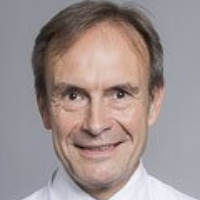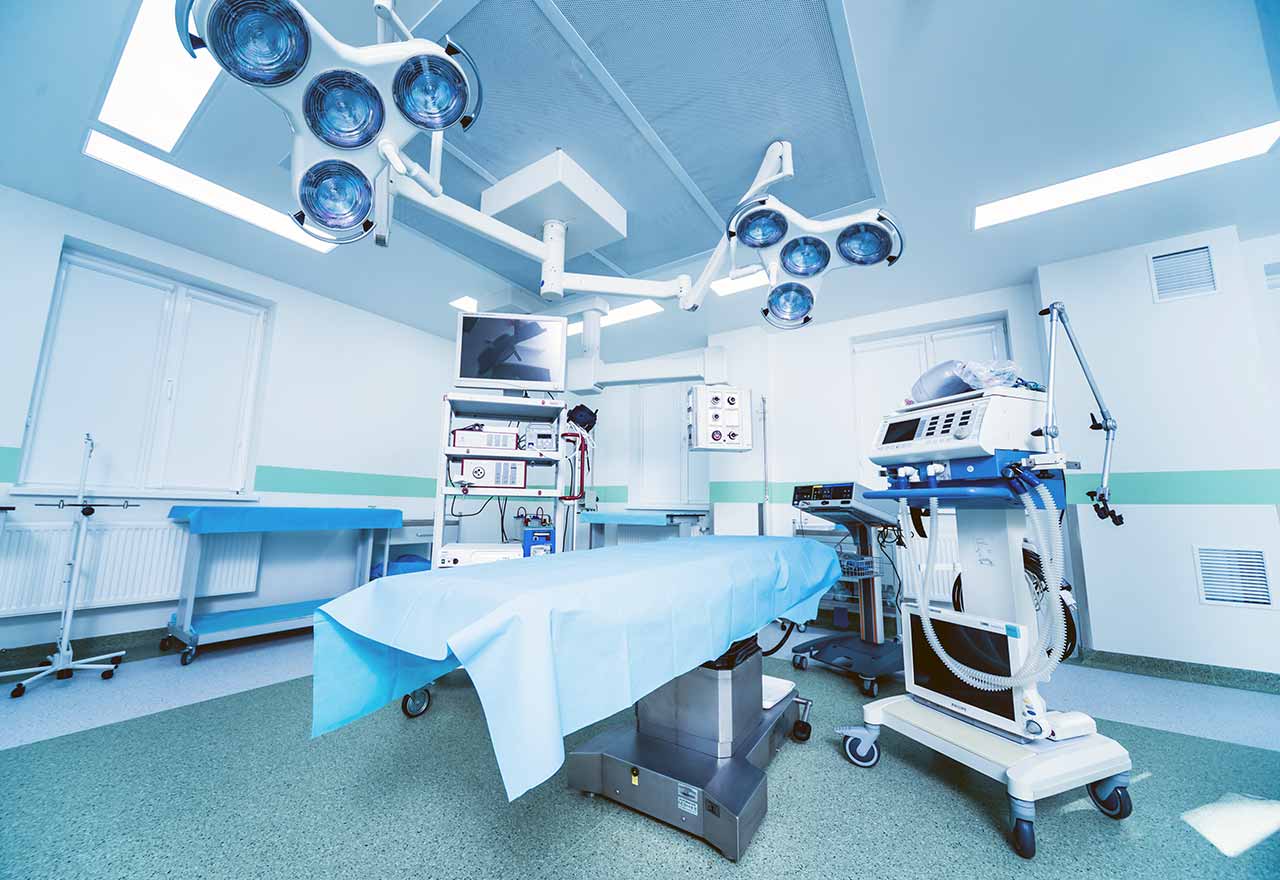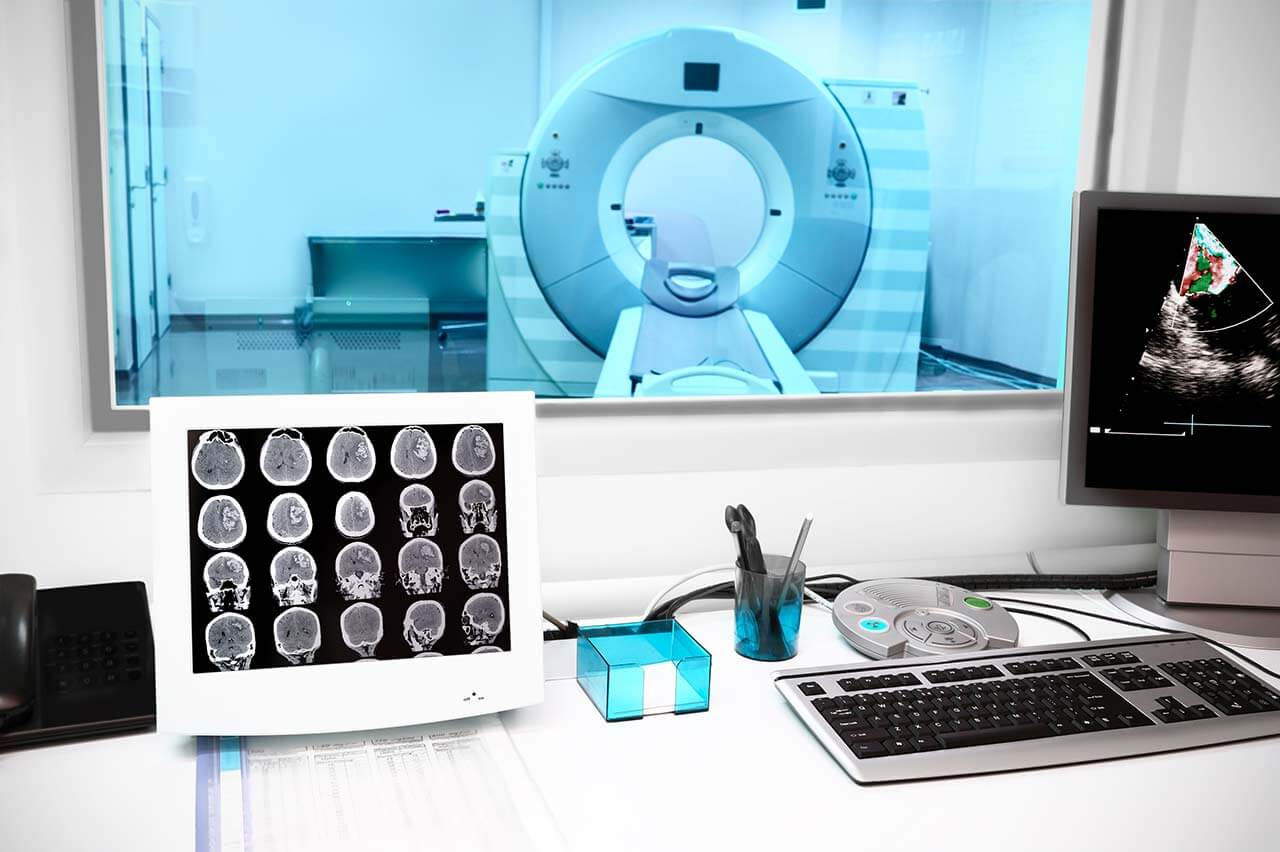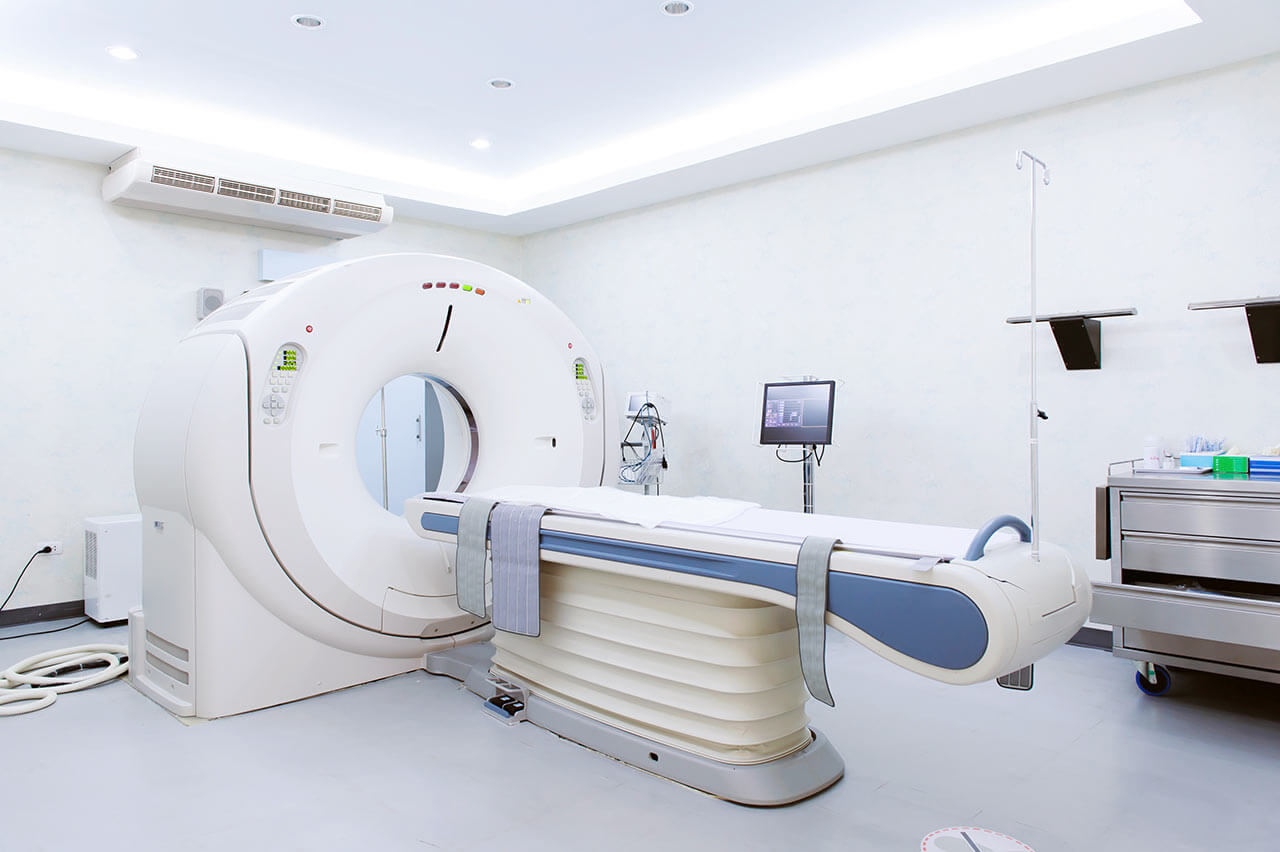
The program includes:
- Initial presentation in the clinic
- clinical history taking
- physical examination
- laboratory tests:
- complete blood count
- biochemical analysis of blood
- Lipid metabolism (HDL/LDL, cholesterol,
triglycerides Lip(a), homocysteine) - blood coagulation analysis (aPTT, PT, INR)
- inflammation indicators (CRP, ESR)
- metabolic status (uric acid, total glucose, HbA1c)
- cardiovascular disease risk markers
- kidney function test (creatinine, urea)
- TSH
- doppler/ duplex receptacles of lower extremities
- angio-MRI from aorta and of lower extremities
- duplex peripheral arteries
- preoperative care
- necrectomy and skin transplantation
- daily wound care
- vacuum dressing treatment
- symptomatic treatment
- control examinations
- the cost of essential medicines and materials
- nursing services
- full hospital accommodation
- developing of further guidance
Required documents
- Medical records
- US scan, MRI/CT scan (if available)
Service
You may also book:
 BookingHealth Price from:
BookingHealth Price from:
About the department
The Department of Vascular Surgery at the University Hospital Hamburg-Eppendorf specializes in performing a full range of surgical procedures for arterial, venous, and lymphatic pathologies. The clinical practice of the medical facility is focused on the surgical treatment of carotid artery stenosis, aneurysms, peripheral arterial occlusive disease of the lower extremities, varicose veins, and deep vein thrombosis. Patients are served by a highly qualified team of surgeons with extensive experience in performing vascular procedures of any complexity. It is important for physicians to provide effective and at the same time the most sparing treatment, which is why they first consider the possibility of performing minimally traumatic endovascular surgery, that is percutaneous procedures using catheter-based techniques under imaging guidance, mostly under local anesthesia. In complex clinical situations, such as large aneurysms or arteriovenous malformations, specialists use classic open surgical techniques, but high skill combined with the latest technology contributes to success in this case as well. The department's work is based on a comprehensive approach to treatment: vascular surgeons meet regularly for consultations to discuss clinical cases with angiologists and interventional radiologists. The department treats more than 5,500 patients a year, 4,000 of them on an outpatient basis. The Head Physician of the department is Prof. Dr. med. Eike Sebastian Debus.
The majority of the department's patients seek medical help for carotid artery stenosis, which is a narrowing of the lumen of the carotid arteries due to the buildup of atherosclerotic plaque on their walls. The condition results in reduced blood flow to the brain, potentially leading to the development of ischemic stroke, a life-threatening condition. The early stages of carotid artery stenosis are asymptomatic, but as the disease progresses, there may be attacks of dizziness, a sensation of pulsation in the head, temporary vision and hearing loss, tinnitus, sudden loss of consciousness, or hypertensive crisis. The treatment plan is developed individually, taking into account the degree of stenosis, the severity of symptoms, and the patient's general condition. The department's specialists most often perform endovascular treatment of carotid artery stenosis using carotid angioplasty followed by stent placement; in complicated clinical situations, carotid endarterectomy may be an option of choice.
The priority areas of specialization of the department's vascular surgery team include the treatment of abdominal aortic aneurysms. This condition causes the blood vessel segment to expand to more than 3 cm in diameter. The larger the diameter of the aneurysm, the thinner its wall, which may potentially cause aneurysm rupture with severe bleeding. Patients with uncomplicated aneurysms have no symptoms, so the pathology is most often diagnosed accidentally, during an examination for another disease. The size of the abdominal aortic aneurysm is the determining factor in the treatment tactics. There is practically no risk of rupture of an aneurysm smaller than 5 cm. In such cases, it is recommended that the patient undergo regular diagnostic tests to monitor the growth of the aneurysm. The detection of an abdominal aortic aneurysm larger than 5 cm in diameter, an aneurysm with significant symptoms, or a rapidly growing aneurysm is an absolute indication for surgery. Whenever possible, the department's vascular surgeons prefer to perform endovascular repair of abdominal aortic aneurysms using the EVAR method. This is a minimally traumatic procedure to implant a stent graft to strengthen the weakened vessel wall to prevent aneurysm rupture, performed through small incisions in the groin under imaging guidance. The hospital stay for endovascular EVAR is 1-3 days. The department also performs open surgery to treat abdominal aortic aneurysms – replacement of the dilated portion of the aorta with a synthetic prosthesis through a standard surgical approach. These surgical procedures are extremely rare: in most cases, the department's surgeons manage to achieve good results with minimally traumatic interventions.
The department also shows excellent results in the surgical treatment of peripheral arterial occlusive disease, which is narrowing or occlusion of the arteries in the lower or upper extremities. As a rule, the pathology develops against the background of atherosclerosis. The main manifestation of peripheral arterial occlusive disease is intermittent claudication. The pathology carries a risk of thrombus formation and development of critical ischemia of the lower extremities and gangrene. The department's specialists offer effective endovascular treatment of peripheral arterial occlusive disease using angioplasty methods followed by the placement of classical stents and drug-eluting stents and rotational atherectomy. During angioplasty, the lumen of the narrowed artery is dilated using a balloon catheter, and during rotational atherectomy a special drill is used to remove atherosclerotic plaques. Advanced stages of peripheral arterial occlusive disease are treated with classical surgical procedures such as endarterectomy or shunting.
The main clinical activities of the department include the following:
- Diagnostics and treatment of carotid artery stenosis
- Diagnostics and treatment of stenosis of the arteries of the brain and upper and lower extremities
- Diagnostics and treatment of abdominal and thoracic aortic aneurysms
- Diagnostics and treatment of aortic dissection
- Diagnostics and treatment of abdominal artery stenoses and occlusions
- Diagnostics and treatment of pelvic and lower limb artery stenoses and occlusions
- Diagnostics and treatment of vascular tumors
- Diagnostics and treatment of varicose veins
- Diagnostics and treatment of deep vein thrombosis
- Diagnostics and treatment of diabetic foot syndrome
- Diagnostics and treatment of chronic non-healing wounds
- Diagnostics and treatment of compression syndromes: Dunbar syndrome, thoracic outlet syndrome, and others
- Diagnostics and treatment of rare vascular diseases
- Diagnostics and treatment of other pathologies of the vascular system
The department's range of diagnostic and therapeutic services includes the following options:
- Diagnostic services
- Color-coded duplex sonography of the vascular system
- Ergometry (treadmill test)
- Arterial oscillography
- Transcutaneous pulse oximetry
- Angiography
- Therapeutic services
- Endovascular interventions
- Balloon angioplasty with or without subsequent stenting
- Atherectomy
- Thrombectomy
- EVAR and TEVAR endovascular techniques for the treatment of aneurysms
- Endovenous laser ablation, radiofrequency ablation, and sclerotherapy for the treatment of varicose veins
- Conventional open interventions
- Carotid endarterectomy
- Open surgery for thoracic and abdominal aortic aneurysms
- Endarterectomy and shunting for peripheral arterial occlusive disease of the lower extremities
- Open surgery for vascular tumors
- Endovascular interventions
- Other medical services
Curriculum vitae
Higher Education and Postgraduate Training
- 1981 - 1987 Medical studies, Christian Albrecht University of Kiel.
- 1986 - 1987 Training and research, Mayo Clinic, Rochester, Minnesota, USA.
- 1987 - 1988 One-year internship, Department of Internal Medicine and Department of Surgery, University Hospital Zurich, Switzerland.
- 16.06.1988 State examination, Christian Albrecht University of Kiel.
- 28.06.1988 Medical license.
- 26.09.1989 Thesis defense, summa cum laude, Faculty of Medicine, Christian Albrecht University of Kiel.
Medical Practice
- 01.08.1988 - 31.10.1989 Military service, medical service captain, Naval Medical Center Flensburg Muerwik.
- 01.11.1989 - 31.10.1990 Work at the Pathology Institute of the University of Wuerzburg.
- 01.11.1990 - 31.08.1991 Surgeon, Department of Surgery, University Hospital Marburg.
- 01.09.1991 - 30.04.2003 Surgeon, Department of Surgery, University Hospital Wuerzburg.
- 09.12.1997 Board certification in Surgery.
- Since 12.1997 Senior Physician, Department of Surgery, University Hospital Wuerzburg.
- 16.05.1998 Certification of the European Board of Surgical Qualification (EBSQ).
- 17.05.1999 Habilitation.
- Since 05.1999 Managing Senior Physician, Department of Vascular Surgery, University Hospital Wuerzburg.
- 30.08.1999 Venia legendi in Surgery.
- 28.11.2000 Specialization in Vascular Surgery.
- 01.03. - 01.06.2002 Distance education, Healthcare Management, Institute of Business Administration and Faculty of Medicine, Philipps University of Marburg.
- 25.09.2002 Certified Vascular Surgeon by the European Board of Surgical Qualification (EBSQ).
- 30.04.2003 Specialization in Abdominal Surgery.
- Since 01.05.2003 Head Physician, Department of General, Vascular and Abdominal Surgery, General Hospital Harburg in Hamburg (Academic Hospital of the University of Hamburg).
- Since 2004 Board Member, German Society for Vascular Surgery and Vascular Medicine (DGG).
- 08.09.2005 Extraordinary Professorship, University of Wuerzburg.
- Since 01.01.2006 Head Physician, Department of Surgery, Asklepios Hospital Harburg.
- 20.09.2007 Fellow of the European Board of Vascular Surgery (FEBSQ).
- 01.10.2009 Head Physician, Department of Vascular Surgery, University Hospital Hamburg-Eppendorf; Full Professor, Department of Vascular Surgery, University of Hamburg.
- 2011 - 2012 Vice President, German Society for Vascular Surgery and Vascular Medicine (DGG).
- 2013 - 2014 President, German Society for Vascular Surgery and Vascular Medicine (DGG); President, German Society of Surgery (DGCH).
Clinical Interests
- Innovations in open and hybrid vascular interventions and devices.
- Pathological lesions of the vascular beds.
- 1st and 2nd ACST study on carotid artery surgery in asymptomatic patients (investigator/surgeon in the center in Hamburg).
Research Interests
- Epidemiology of vascular diseases and medical care of patients with these pathologies.
- Study of aortic conditions.
- Study of obliterating arteritis.
Memberships in Professional Societies
- German Society for Vascular Surgery and Vascular Medicine (DGG).
- Professional Association of German Surgeons (BDC).
- German Society for Angiology (DGA).
- German Society of Thrombosis and Haemostasis Research (GTH).
- German Society for Thoracic and Cardiovascular Surgery (DGTHG).
- European Tissue Repair Society (ETRS).
- German Society for Wound Healing and Wound Treatment (DGfW).
- European Digestive Surgery (EDS).
- Society for Surgery of the Alimentary Tract (SSAT).
- European Society for Vascular Surgery (ESVS).
- Initiative for Chronic Wounds (ICW).
- Professional Association of Surgeons of North-West Germany (NDCH).
Photo of the doctor: (c) Universitätsklinikum Hamburg-Eppendorf (UKE)
About hospital
According to the Focus magazine, the University Hospital Hamburg-Eppendorf is one of the top ten hospitals in Germany!
Since its foundation in 1889, the hospital has taken a leading position in the European medical arena, which it still holds today. A highly competent medical team of more than 15,300 employees takes care of the health of patients. Approximately 2,900 of them are physicians and researchers, and more than 3,400 work as nurses and therapists. The hospital has 1,738 beds for inpatient treatment, and many diagnostic and therapeutic services are provided on an outpatient basis. A solid foundation for successful clinical practice in the medical complex is formed by a combination of research achievements with state-of-the-art equipment and the highest professionalism of doctors. In addition, the hospital has a modern and extremely comfortable infrastructure. The most important value for every employee of the University Hospital Hamburg-Eppendorf is the health and well-being of every patient.
The medical facility was the first university hospital in Europe to implement an electronic system for storing patient medical reports. As a result, all diagnostic and treatment protocols are stored electronically. In 2011, the hospital was certified as the first fully digital hospital in Europe.
The hospital represents all areas of modern medicine. The doctors of the healthcare facility have a wealth of theoretical knowledge and vast clinical experience, which allows them to easily cope with the treatment of both common and extremely rare, complex clinical cases. About 550,000 patients are treated here each year, over 450,000 of whom receive outpatient medical care.
An important part of the work of the University Hospital Hamburg-Eppendorf is research activities aimed at developing innovative diagnostic and treatment methods. The main areas of research of the hospital include neurobiology, oncology, cardiovascular research, and research on infectious and inflammatory diseases. Special attention is also given to research in molecular imaging and skeletal biology.
The hospital is distinguished by its first-class level of medical care, which is confirmed by numerous quality certificates of European and international standards: DIN EN IS0 9001 certificate, certificates of the German Cancer Society (DKG) in the treatment of breast cancer, colon cancer, gynecological cancer, prostate cancer, and other oncological diseases, certificate of the German Cardiac Society (DGK) in the treatment of acute coronary syndrome, certificate of the German Spine Society (DWG), and others.
Photo: (с) depositphotos
Accommodation in hospital
Patients rooms
The patients of the University Hospital Hamburg-Eppendorf stay in comfortable single and double bright rooms with a modern design. Each patient room has an ensuite bathroom with a shower and a toilet. The standard patient room furnishings include an automatically adjustable bed with an orthopedic mattress, a bedside table, a wardrobe, a table and chairs for receiving visitors, a telephone, a radio, and a TV. Wi-Fi access is available in patient rooms and throughout the hospital.
If desired, patients can stay in single enhanced-comfort rooms. These rooms are more spacious and are equipped with upholstered furniture, a safe, and a mini-fridge.
Meals and Menus
The hospital offers three meals a day: breakfast, lunch, and dinner. Breakfast and dinner are served in the form of buffets, and for lunch you can choose from several set menus – in total, more than 20 dishes are served for lunch, including vegetarian ones.
If, for some reason, you cannot eat all of the foods, you will be offered an individual menu. Please inform the medical staff about your dietary preferences prior to the treatment.
Further details
Standard rooms include:
![]() Toilet
Toilet
![]() Shower
Shower
![]() Wi-Fi
Wi-Fi
![]() TV
TV
Religion
Religious services are available upon request.
Accompanying person
During the inpatient program, an accompanying person may stay with you in a patient room or hotel of your choice.
Hospital accommodation
During the outpatient program, you may stay in a hotel at the hospital.
Hotel
During the outpatient program, you may stay in a hotel of your choice. Managers will help you choose the most suitable options.
The hospital offers a full range of laboratory tests (general, hormonal, tests for infections, antibodies, tumor markers, etc.), genetic tests, various modifications of ultrasound scans, CT scans, MRI and PET / CT, angiography, myelography, biopsy and other examinations. Treatment with medications, endoscopic and robotic operations, stereotaxic interventions is carried out here, modern types of radiation therapy are also used. The hospital offers patients all the necessary therapeutic techniques.
- Coiling and clipping of aneurysms of different localizations
- Transjugular intrahepatic portosystemic shunting in patients with portal hypertension
- Minimally invasive surgeries (da Vinci)
- Removal and reconstruction of mammary glands
- Hyperthermic intraperitoneal chemotherapy (HIPEC)
These are arteriovenous malformations and angiomas, vascular aneurysms, pathologies of the mammary glands, pelvic organ prolapse, urinary incontinence, malignant tumors of various localizations (area of special attention is treatment of intestinal cancer), pathologies of liver and pancreas, cataracts and rare ophthalmic pathologies (aphakia, aniridia ), infertility and other diseases.
- Interventional neuroradiology
- Mammology
- Oncology
- Gastroenterology
- Surgery
Over 2,900 highly qualified physicians and researchers work at the hospital.





